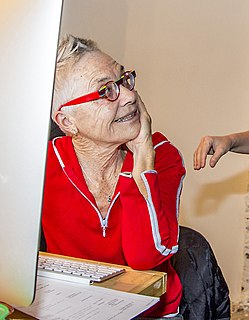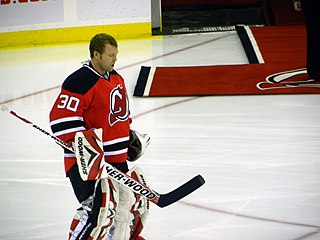A Quote by Bill Watterson
Cincinnati at that time was also beginning to realize it had major cartooning talent in Jim Borgman, at the city's other paper, and I didn't benefit from the comparison.His footsteps seemed like good ones to follow, so I cultivated an interest in politics, and Borgman helped me a lot in learning how to construct an editorial cartoon. Neither of us dreamed I'd end up in the same town on the opposite paper.
Quote Topics
Related Quotes
I was given some designer colors for ink pens a long time ago and I haven't used them, and I have some handmade paper, and I just have the desire to drip on wet paper. It reminds me of when I was seven years old and had my tonsils out, and one of the first artworks I made was on toilet paper with a colored pencil; it was sort of half paint and half colored pencil. But I got very involved with color and absorption and I think, you know, 78 is a good time to go back to the beginning.
Coming from Montreal, Patrick Roy was the guy that everybody looked up to. He was consistent and successful early in his career; he won the Stanley Cup when he was really young and he played with a great organization. For me it was also a French thing, like one of us had made it that big in the NHL, and you tried to follow in his footsteps.
Because I spend so much time traveling, I tend to do most of my reading on the same iPad on which I write. For me, it's words, not paper, that matter most in the end. This practice has had the additional benefit of greatly reducing the time I spend storming through the house, defaming the mysterious forces who 'hid my book.'
I like "Rock, Paper, Scissors Two-Thirds." You know. "Rock breaks scissors." "These scissors are bent. They're destroyed. I can't cut stuff. So I lose." "Scissors cuts paper." "These are strips. This is not even paper. It's gonna take me forever to put this back together." "Paper covers rock." "Rock is fine. No structural damage to rock. Rock can break through paper at any point. Just say the word. Paper sucks." There should be "Rock, Dynamite with a Cutable Wick, Scissors."
Each memory is like a paper flower stowed up a magician's sleeve: invisible one moment and then so substantial and florid the next I cannot imagine how it stayed hidden all this time. And like those paper flowers, once they've been let loose in the world, the memories are impossible to tuck away again.
I meet you. I remember you. Who are you? You’re destroying me. You’re good for me. How could I know this city was tailor-made for love? How could I know you fit my body like a glove? I like you. How unlikely. I like you. How slow all of a sudden. How sweet. You cannot know. You’re destroying me. You’re good for me. You’re destroying me. You’re good for me. I have time. Please, devour me. Deform me to the point of ugliness. Why not you? Why not you in this city and in this night, so like other cities and other nights you can hardly tell the difference? I beg of you.
Dappled sunlight and looked at the silver vapor swirling inside. "Mist gathered at first light on the first day of the new moon on the Isle of Avalon," he said. "Yep. Good for one hour of great talent," said Annie. Jack smiled, remembering their hour as horse trainers and their hour as stage magicians. "I wonder what we'll be great at this time," he said. "Maybe great nurses?" said Annie. "We'll see," said Jack. He put the tiny bottle in his backpack; then he picked up the piece of paper from the floor. On the paper he had written the two secrets of greatness they'd


































